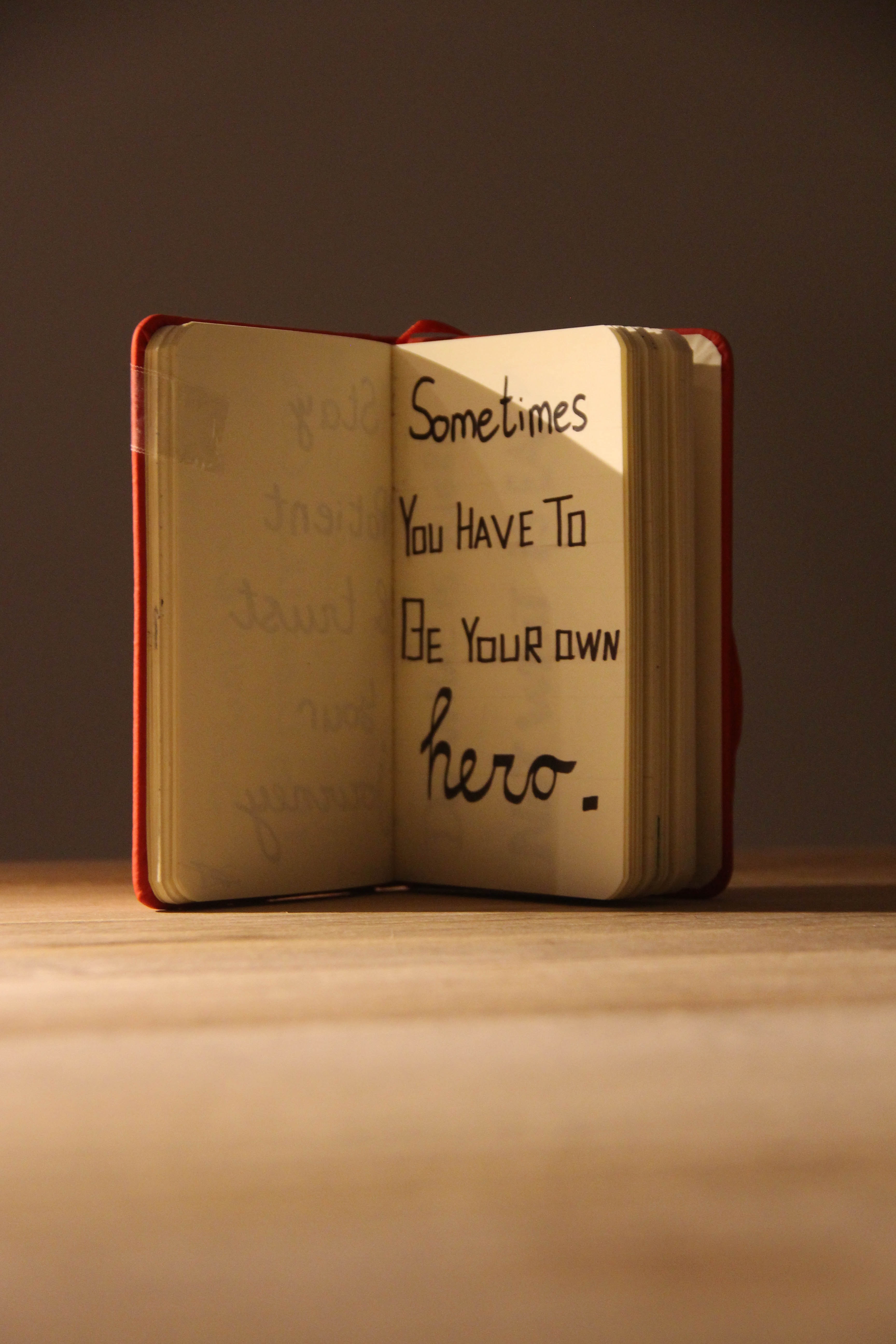
On Tuesday morning, Mariia was deeply upset. She had just read the news that the huge hydro-electric dam in Nova Kakhovka, Southern Ukraine had been blown-up by the Russians. The walls breached, water cascaded over the surrounding countryside and towns engulfing all in a swirling mass of liquid destruction.
The human costs are obvious. Houses are wrecked, beautiful buildings flooded and destabilized. Tens of thousands of people have been evacuated in a country already struggling with so many internally displaced persons. And the threat to the nuclear power plant reliant on its water to the north is pending, as are the fates of those further from the site who depend on on the dam for much needed electricity.
The cost to nature
Yet, less often mentioned is the ecological cost. Zelensky referred to this attack as “an environmental bomb of mass destruction” for this area is one of special ecological interest, containing two nature reserves and several zoos. The Russians have already been colonising vast tracts of parkland throughout the occupied areas and the eternal shelling has caused devastating wildfires and consequent deforestation.
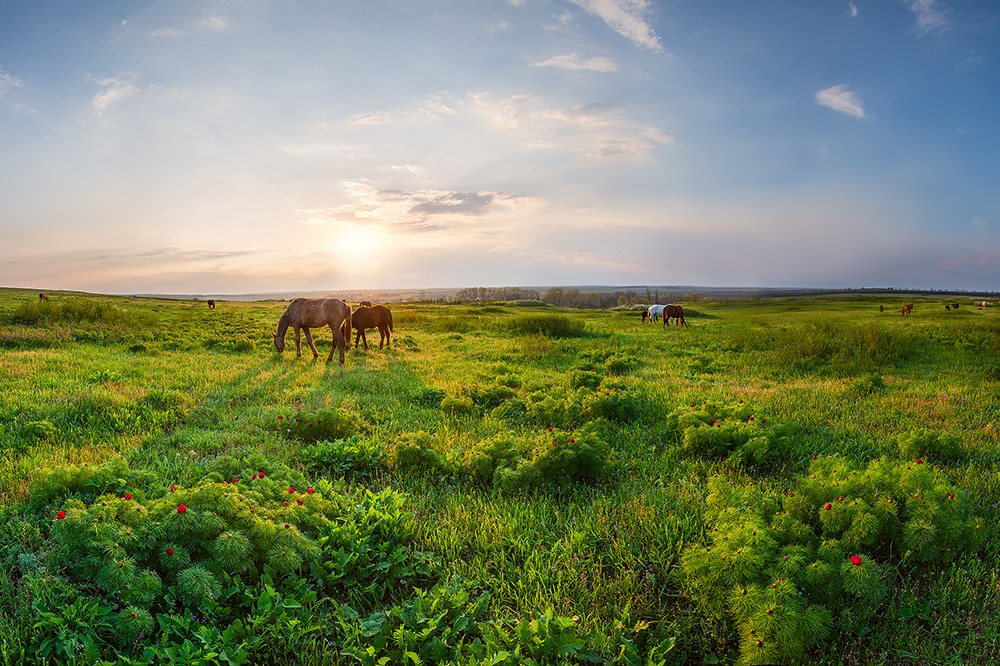
Those areas which once provided a refuge for animals, rare plants and fish, have been polluted and mined and burned. Below is an image of what the Russians have left behind.
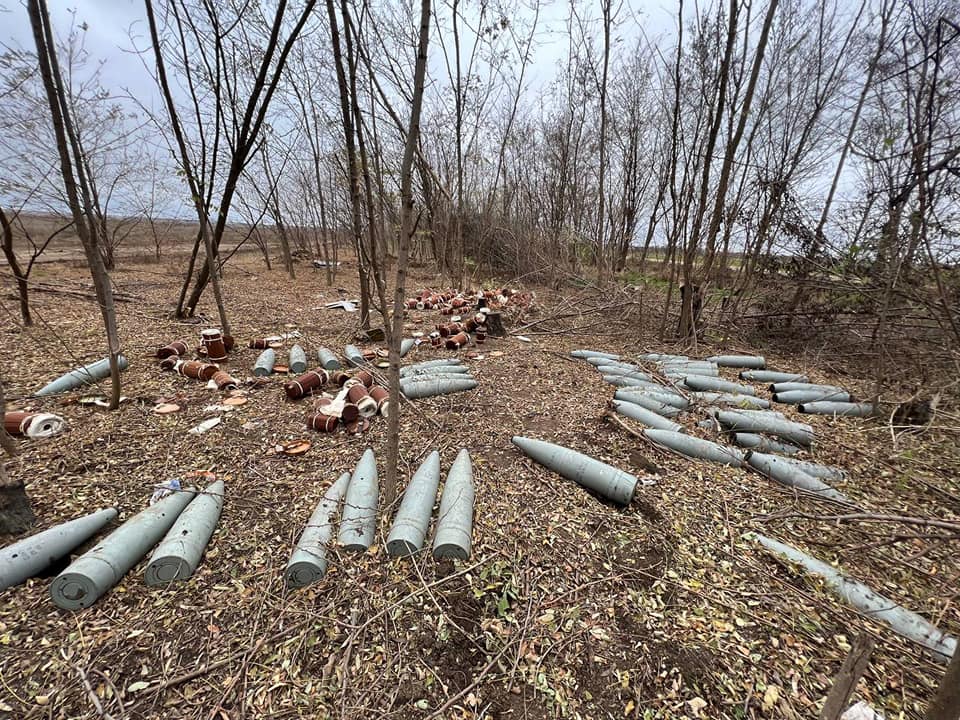
If you are interested in learning more, the following site is excellent, if a little depressing: https://ukraineworld.org/articles/analysis/russias-environmental-crimes?utm_source=flipboard&utm_content=topic%2Fnatureconservation
Defeating despair
In a week or two, the news cycle will move on and we will forget these acts of destruction, though the effects will linger for many decades. So what can we do? Mariia was understandably angry about the assault on her country and I was too. My first task though was to turn that anger to something more positive. If we succumb to hate, the aggressor has won by making us join him in his pursuit of evil. (I do not use that word lightly.)
Yet, the devastation is so overwhelming and so pointless that it is easy to lose hope.
I tried to remind her of all the individuals who are risking their own welfare to evacuate those caught in the floods and to give them shelter. Compared to the small number of those involved in the bombing, a very large number of people are working hard to repair the damage and help those left in the wake of catastrophe.
We can tut and shake our heads about this pointless devastation or we can act. Oscar Wilde wisely said:
The smallest act of kindness is worth more than the grandest intention.
Oscar Wilde
In the UK, we are hardly in a position to rescue people from their rooftops, but there is much we can do from keeping love in our hearts to practical strategies. As Mariia has remarked several times, we have the privilege of living in a democracy. A single vote or a single letter to our MP may not seem much, but with others, we can produce real change.
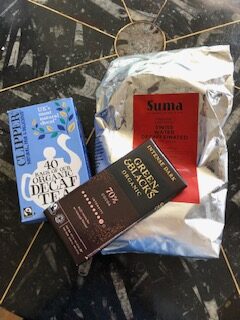
As an example of one person making a difference, I told her about our friend ‘Fairtrade Matt’ who we knew from our Greenpeace days. He toiled for years encouraging individuals and organisations to sell and use Fairtrade products. Other individuals across the country did the same. For years, nothing much happened. Then, it seemed as if everyone was committing to the practice of ethical sourcing. The supermarket aisles that once only had the choice of a single product at the bottom of the shelf now had an abundance. The same happened with free-range eggs. And the same with meat-free products.
Because effecting real, meaningful change takes time and commitment and it starts with the decision to act and empower ourselves.
Choosing to be the hero
That afternoon, Mariia noticed a social media post asking Ukrainians to meet in the town to create posters and raise awareness of the situation in their homeland.
She set off with Hermione (they were also calling attention to the effect on animals) and met up with a few other determined souls to tell their story. As it was at the end of the work day, they were able to speak to a number of people (some of whom had never met a Ukrainian) and explain their cause.
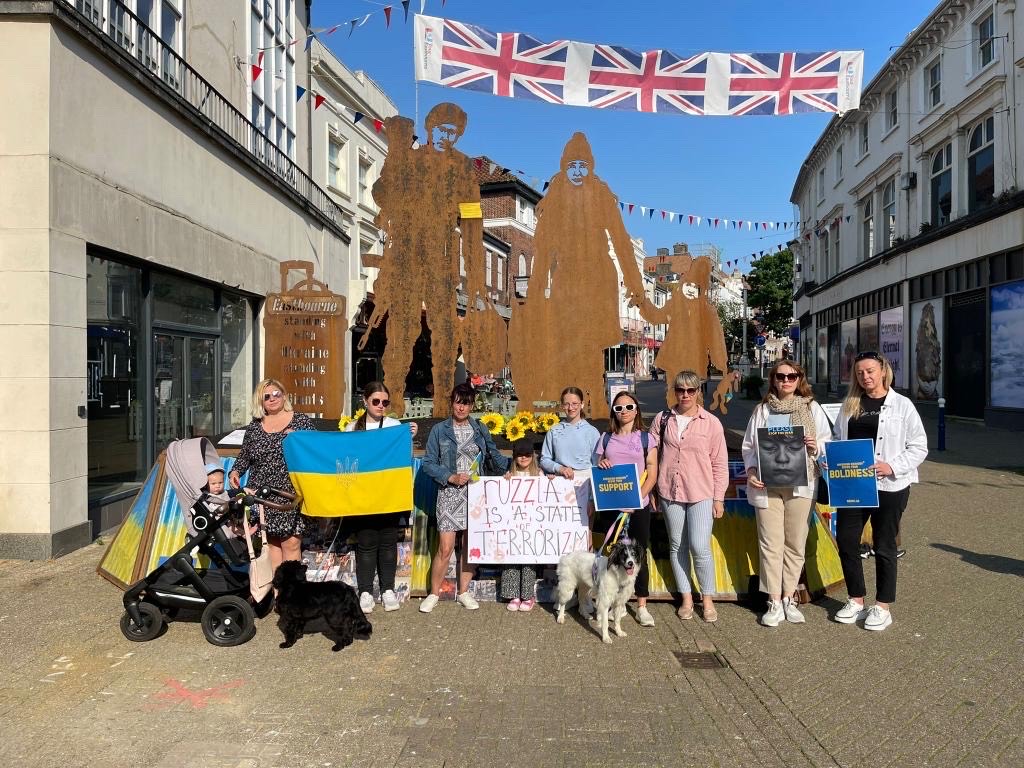
Will it make a difference? Only time will tell, but I hope that the people they spoke to left with a greater understanding and a willingness for our government to maintain support for Ukraine.
That same day, I read an article in The Times where many of the Republican presidential candidates in the US referred to the invasion as a ‘territorial dispute’. Really? How easy it is to downgrade events through the manipulation of language. A dispute hardly requires international support: an invasion, which unchecked may well spill over to other countries, certainly does. Language matters and we must be vigilant in avoiding the politician’s trick of misdirection and when we see it, like Mariia, explain the truth.
The hero’s reward
I would love nothing better than to say here that the hero’s reward was consummate with his/her effort. But, I would be lying. In reality, the hero’s path is littered with hardship, challenges, failures and hurt. It is seldom acknowledged (except perhaps posthumously) and just as often ridiculed.
So why bother? Because acting in a way that you think is right and that will benefit others brings its own reward. After a day of looking very glum indeed, Mariia came home smiling and excited by all she had achieved. And that was enough.

That is so sad. But so good that Maria found a positive way forward from it.
This is such a beautifully written piece Karen. You ought to try to publish it more widely and make more people aware of the impact of the war in Ukraine on individuals like Maria.
Thank you, Sally. It is indeed tragic and I shall keep in mind what you suggest. With these sweeping and terrible events, it is difficult to remember that those affected are individuals like you and me and not merely statistics in news stories. Any suggestions as to outlets most welcome! x